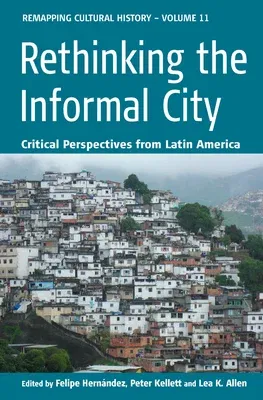Rethinking the Informal City: Critical Perspectives from Latin AmericaPaperback, 1 March 2012

Qty
1
Turbo
Ships in 2 - 3 days
In Stock
Free Delivery
Cash on Delivery
15 Days
Free Returns
Secure Checkout

Part of Series
Remapping Cultural History
Part of Series
Remapping Cultural History, 11
Print Length
264 pages
Language
English
Publisher
Berghahn Books
Date Published
1 Mar 2012
ISBN-10
0857456075
ISBN-13
9780857456076
Description
Product Details
Book Format:
Paperback
Country of Origin:
GB
Date Published:
1 March 2012
Dimensions:
22.86 x
15.24 x
1.4 cm
ISBN-10:
0857456075
ISBN-13:
9780857456076
Language:
English
Location:
New York, NY
Pages:
264
Publisher:
Weight:
358.34 gm